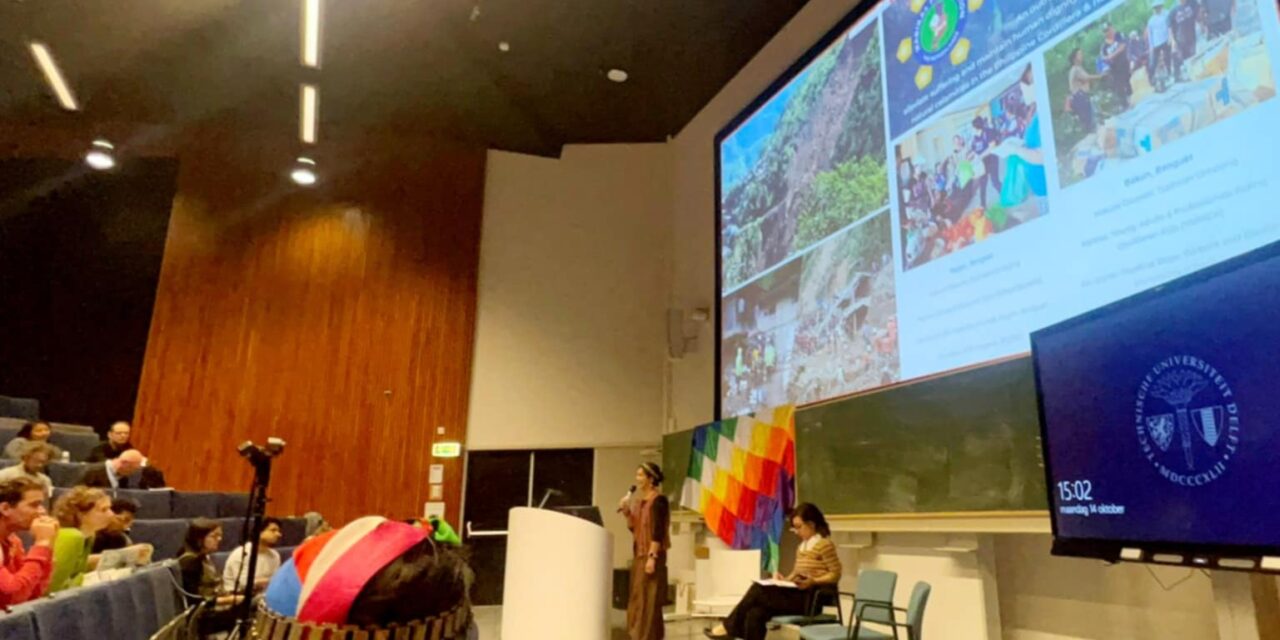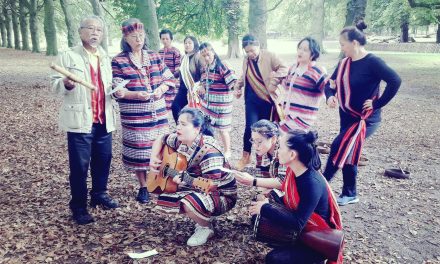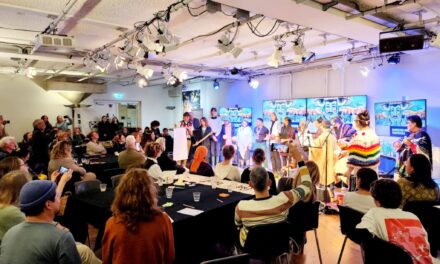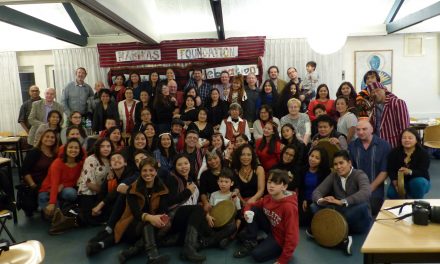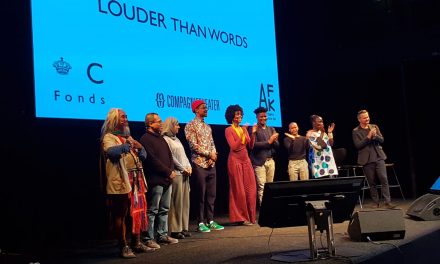The demand for critical raw materials is soaring, driven by the urgent need for sustainable technologies and renewable energy solutions. However, this demand often comes at a high cost to Indigenous communities whose lands are rich in these resources. On October 14, 2024, TU Delft’s Decolonial Working Group hosted a thought-provoking event titled Reimagining Engineering. The discussion focused on how engineers can actively support Indigenous grassroots movements.
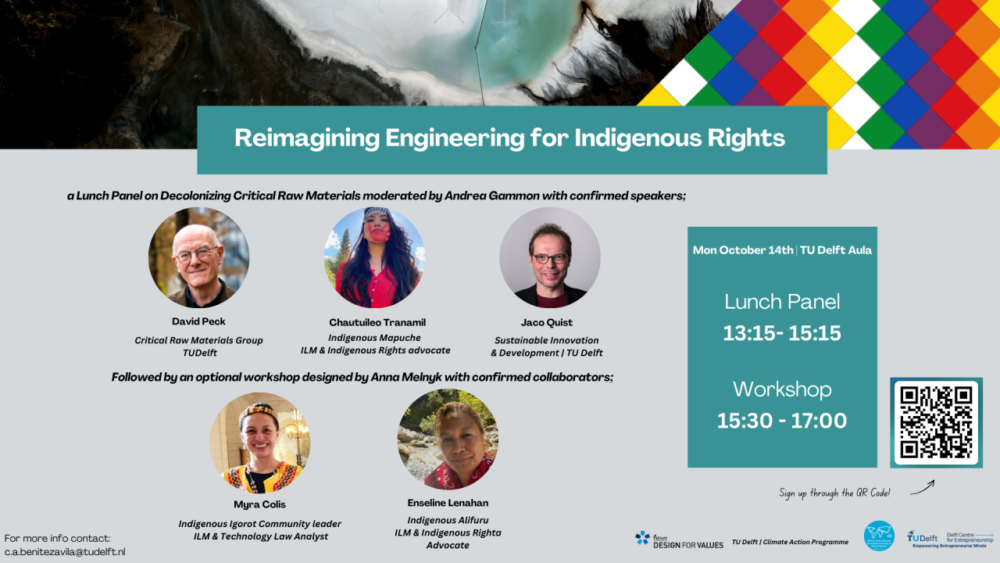
The panel begins with short introductory presentations from the speakers, followed by presentations of specific cases, including nickel and gold mining in the Indigenous Maluku and Igorot communities, respectively. During this panel discussion, several key statements and questions were raised that invite further discussion and debate.
- There is a strong connection between mining activities and colonial risks; as mining areas expand, the likelihood of colonial exploitation increases. However, quantifying this colonial risk remains a challenge, as it has historically gone unmeasured. In the cases presented by Indigenous community leaders Myra Colis (Chairperson of MABIKAs Foundation) and Enseline Lenahan, it is evident that Indigenous communities resist having their lands mined and emphasize the need for integrating Indigenous voices into discussions about resource extraction and sustainability.
- While the importance of ethical considerations and frameworks ensuring Indigenous involvement and representation is acknowledged, a significant challenge persists: how can we effectively gather consent from Indigenous communities and represent their interests in decision-making processes, especially when governments request extraction?
- Concerns are growing regarding the implications of capital investment in mining, particularly in relation to the transition to zero emissions. While materials are essential for this transition, the focus should be on finding pathways that minimize harm to Indigenous communities. This necessitates a critical examination of supply and demand in resource allocation, prompting the question of how much is truly necessary versus what is desired.
- Regarding the concept of a circular economy, the current model often favors the Global North at the expense of the Global South. The emphasis should be not only on utilizing renewable resources but also on redistributing capabilities and resources to support global equity. This raises the question of what a just transition looks like, particularly for communities impacted by resource extraction.
- Our educational system, particularly in engineering, reflects a traditional focus on mechanistic approaches, which can sideline social considerations. There is a need for a multidisciplinary perspective that integrates cultural understanding and emotional connections to the land, especially concerning Indigenous communities.
- Finally, there is growing concern about the diminishing presence of ethics committees and the need to reintegrate ethical considerations into engineering practices. This underscores a broader call for accountability and responsibility within engineering to ensure that community voices, particularly those of marginalized groups, are heard and respected.
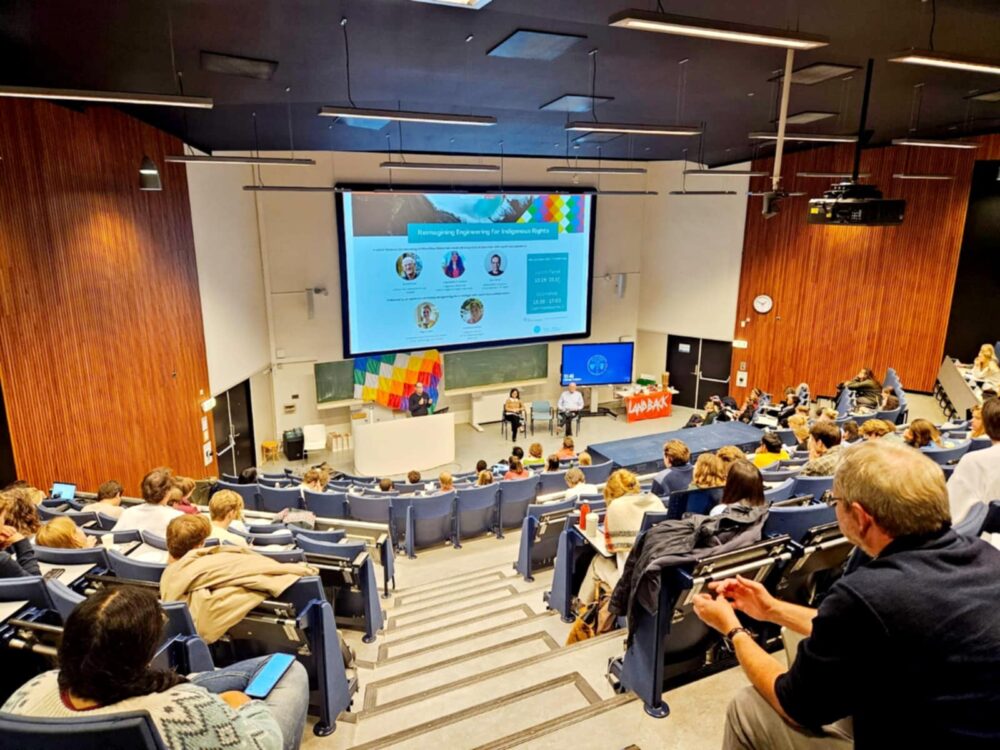
Moderated by Dr. Andrea R. Gammon (Assistant Professor of Ethics of Technology), the panel features three indigenous women leaders representing the Indigenous Liberation Movement (ILM) – Chatuileo Tranamil (Mapuche), Enseline Lenahan (Maluku), Myra Colis (Igorot)– together with Prof The panel features: Prof. David Peck (Spearhead, TU Delft’s Critical Raw Materials Group), Dr. Jaco Quist (Expert in Sustainable Innovations and Transitions, TU Delft).
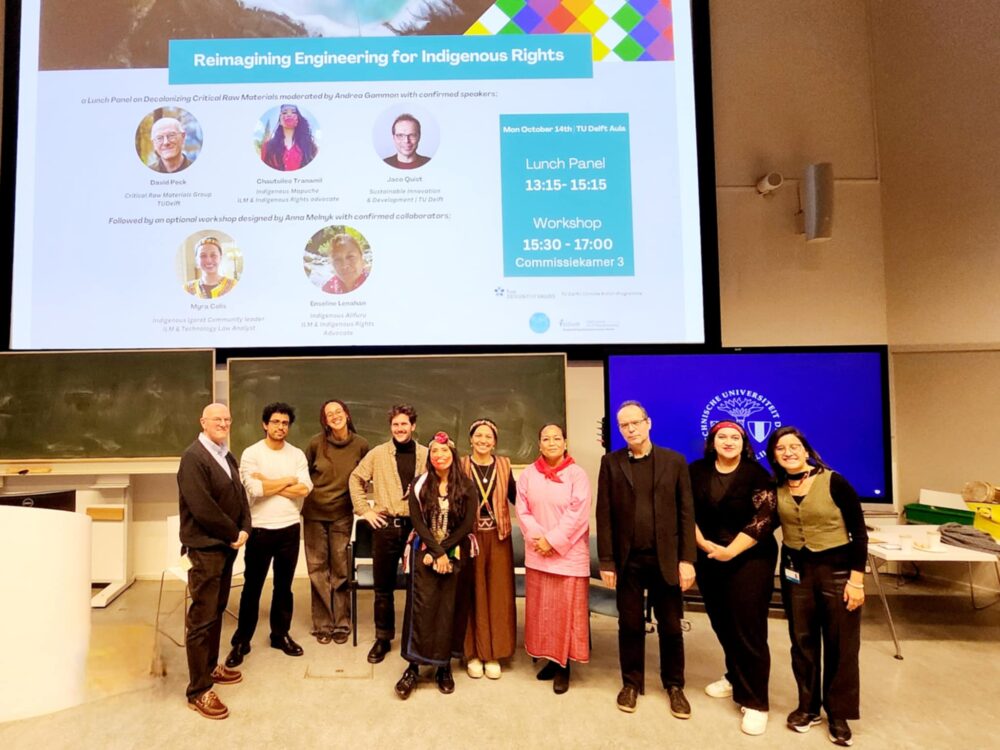
This event is organized by TU Delft’s Decolonial Working Group ( Fátima Delgado Medina and Camilo Benitez ) and TU Delft’s Design for Values (Anna Melnyk Florian Huber) with the all-out support from team members Avila Andrea R. Gammon Trivik Verma Amber Agyemang Tadé Whenu Klaas Pieter van der Tempel.
